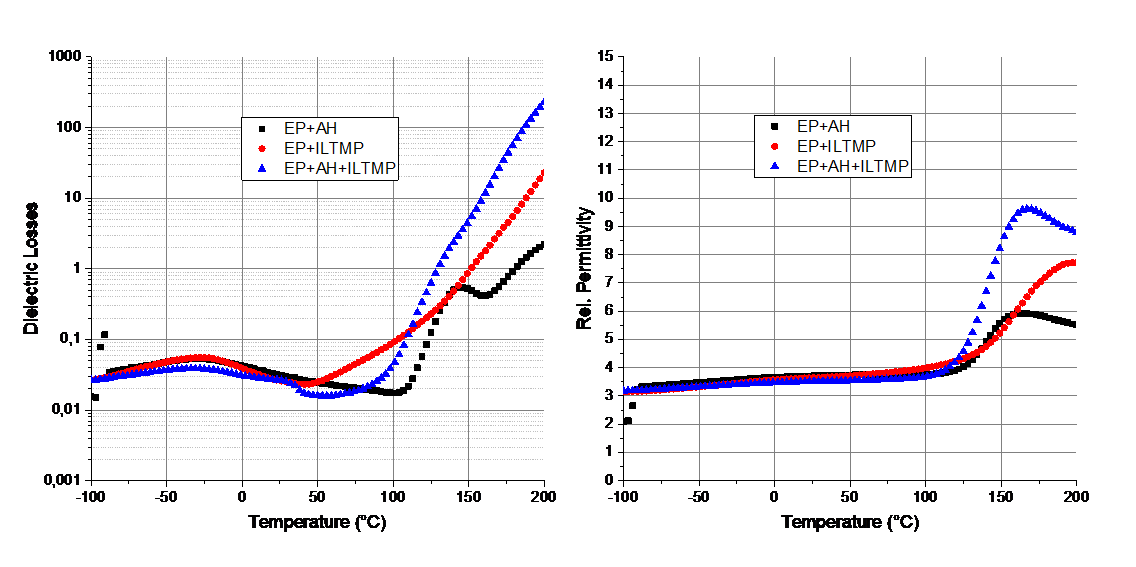Electrical properties of epoxy systems based on ionic liquids

Figure: Relative permittivity and dielectric loss of ionic liquid based epoxy systems
Abstract
In accordance with their interesting properties, ionic liquids (ILs) have attracted in the recent years a great interest in the material field. [1] Recently, few authors have demonstrated the reactivity of ionic liquids towards epoxy in order to form new epoxy-based networks. These works demonstrated the initiation of homopolymerisation of an epoxy system by imidazolium, pyridinium and phosphonium-based ILs without the aid of a conventional hardener [2, 3, 4]. These studies highlighted the key role of ILs and their impact on the final properties of material (such as thermal stability, glass transition and hydrophobicity). However, a lot of questions are still standing, especially on the network formation and the mechanisms induced by phosphonium based ILs towards epoxy prepolymer. On one hand, the current study aims to complete the knowledge on these new networks, bringing more information on the molecular structure. On the other hand, ILs are known to provide high ionic conduction (in reasonable conditions), but nearly none of the studies was especially dedicated to the electrical properties of such ionic liquid based thermosetting systems. Thus, an investigation on these properties has also been realised.
Thibaut LEFORT (1, 2), Jannick DUCHET (1), Damien BACHELLERIE (2), Cong Thanh VU (2), Sébastien LIVI (1), Paul VINSON (2), Alain GIRODET (2), Sébastien PRUVOST (1, 2)
1 INSA Lyon, UMR CNRS 5223, IMP Ingénierie des Matériaux Polymères, F-69621 Villeurbanne, France
2 SuperGrid Institute SAS- 23, rue Cyprian, BP 1321 – 69611 Villeurbanne, France
Conference: 10 th ECNP 2018 – San Sebastian International Conference on Nanostructured polymers and Nanocomposites


